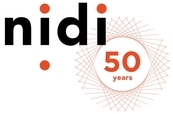“In the short term, we may not yet expect newspaper reports that Ajax supporters of Turkish descent have come to blows with Feyenoord supporters of Turkish descent. But we should not exclude it as a future possibility.” This statement was published as part of the survey results of The Integration of the European Second Generation. This international comparative study focuses on the descendants of immigrants from Turkey, Morocco, former Yugoslavia and their majority group peers in 15 European cities, including Amsterdam and Rotterdam. This large-scale comparative study among 18 to 35 year olds was coordinated by the Institute for Migration and Ethnic Studies at the University of Amsterdam, and NIDI was responsible for the international survey.
The study is groundbreaking in that it for the first time gives in-depth insights into the life courses and related choices of the second generation of Turkish and Moroccan origin in the Netherlands compared to their peers of the majority group as well as to [diaspora in] other countries in Europe. These descendants of immigrants are coming of age and have started the transition from education to the labour market, so the survey captures the respondents at a key transition moment in terms of their career; but the study also sheds light on their religious bonds, their social relationships and choice of partner.
It showed among other things that second generation women do relatively well on the Dutch labour market; they have taken a huge step in just one generation compared to their mothers, who were very poorly educated and hardly represented in the labour market. In addition, it also shows how second generation young adults identify strongly with the neighbourhood and city they live in.
| Also view a corresponding VIDEO on life courses of children of immigrants |  |
In 2020 we celebrated our 50th anniversary as the national demographic institute of the Netherlands. Here we look back at 50 years of NIDI research and relate that to our current research. We present insights and landmarks from some of the studies that have been conducted in the past, combined with short videos of early career scholars at NIDI, presenting current research projects on similar topics.
Back to: NIDI 50 Years • Cross sections of population research
